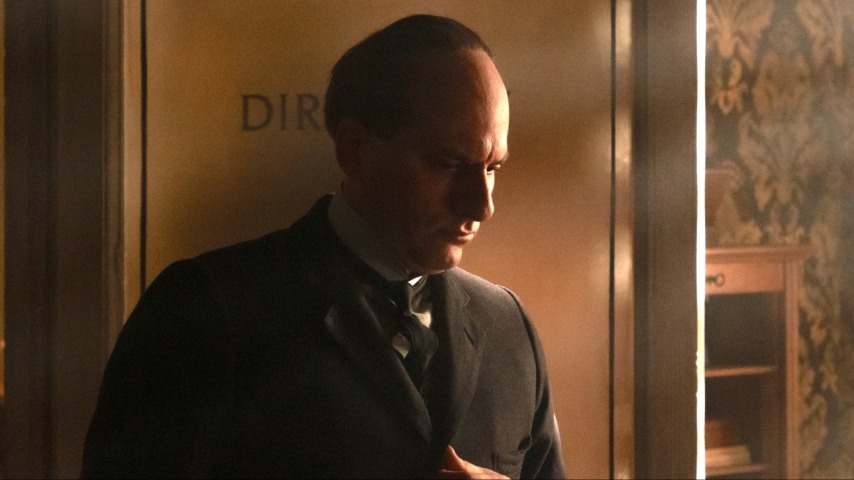Joe Wright wishes his Mussolini show wasn't so timely
With his new limited series, the Pride & Prejudice director reminds us that "it's not just America that's facing these questions right now."
Luca Marinelli as Benito Mussolini (Photo: Andrea Pirrello)
A dangerous demagogue swept into power by an ill-informed populace. Military forces turned on civilian populations. Intimidation at the polls. A fourth estate annexed by the government. These developments could describe the United States in the 2020s, but they’re pivotal events in Joe Wright’s Mussolini: Son Of The Century, a stylish and riveting limited series based on the first book in Antonio Scurati’s series about the founder of fascism, Benito Mussolini. The show, which premiered on September 10 in the U.S. on MUBI after debuting on Sky Atlantic, charts the Italian dictator’s rise to power, starting with his ouster from the Italian Socialist Party, his embrace of Italian nationalism, and his use of secret police.
Grim as that history may be, Wright’s eight-parter, like the book it draws from, is anything but. Along with his co-writers Stefano Bises, Davide Sevino, and Scurati, the Pride & Prejudice and Darkest Hour director crafts a fascinating amalgam of fact and fancy to capture how a tyrant like Mussolini could capture the imagination of the Italian citizenry after the first World War. That was part of Wright’s mission to better understand the roots of fascism, which have stretched into the present. Although there’s the occasional nod to Mussolini’s modern-day analogs, like a call to “make Italy great again,” Wright and his collaborators let audiences draw their own parallels—a task that is being made easier, at least for many U.S. viewers, in the Trump presidency.
Aside from just not being his style, Wright tells The A.V. Club he knew he couldn’t put forth a straightforward history lesson or a bleak drama. That wouldn’t deepen anyone’s understanding of how someone as alternately loathsome and pathetic as Mussolini became entrenched in politics. It was equally important to the filmmaker that the dictator not be depicted as a one-dimensional monster. That would elide how he came to rule and the “shared responsibility” of those who swept him into power. Instead, Mussolini: Son Of The Century keenly—sometimes hilariously and always with great elan—observes everything that went wrong and right to create a path for fascism to find its way to the highest levels of government.
The A.V. Club talked to Wright about the series, the “centrist” U.S. entertainment industry that made its Stateside arrival look unlikely, and the incidental topicality of his recent work.
The A.V. Club: Antonio Scurati described his book as a documentary novel because of all the historical records and documents he incorporated. What term would you use to describe your series: historical drama or…?
Joe Wright: I guess I would call it a historical political horror, maybe. [Laughs] But I tried to find the cinematic equivalent of Scurati’s form, and so the show involves lots of different media, from newspapers to drama to first person narration, to try and create that kaleidoscopic view on this subject.
AVC: As far as the narration, there’s obviously a bit of that in the book. Did that inspire Luca Marinelli’s talk-to-camera moments as Mussolini in the show?
JW: Yeah. There was a little piece at the beginning of the book where Mussolini talks in first person. And we felt that using this first person allowed access to a contemporary audience and thematically was interesting because it suggests him trying to take control of his own narrative. As the show progresses, he more and more loses control of that narrative.
AVC: In trying to land on the right approach for the adaptation, you said you drew from lots of sources of inspiration, citing films like Dziga Vertov’s Man With A Movie Camera and Howard Hawks’ Scarface as well as ’90s rave culture as influences. What other references can people expect to see in your show? I thought I caught a nod to My Fair Lady in a scene from one of the early episodes.
 Keep scrolling for more great stories.
Keep scrolling for more great stories.
